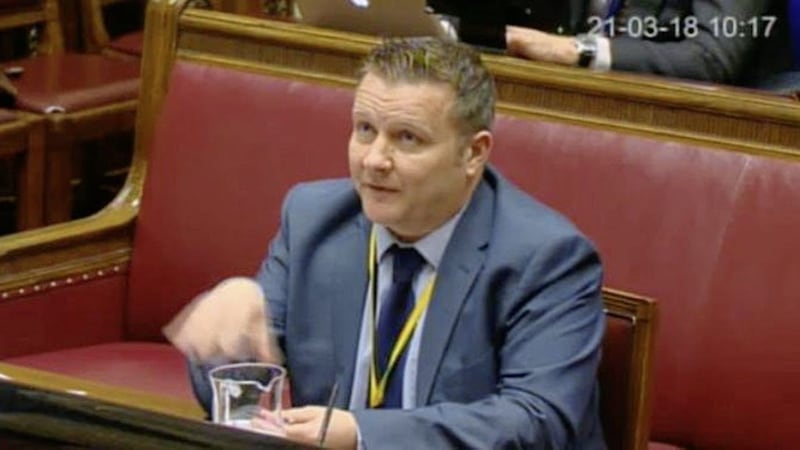A SENIOR civil servant has admitted to not reading a handover note, which contained a list of "urgent actions" needed, when he took over responsibility for the Renewable Heat Incentive (RHI) scheme.
Giving evidence to the RHI Inquiry, Stuart Wightman also accepted today that he had engaged with a number of renewable energy companies ahead of the introduction of proposed changes to the scheme, including a move away from the lucrative flat-rate tariff on offer.
But he said "there is no evidence of an increase in applications" following his consultation on the cost controls, which would have moved applicants to a tiered and capped process.
Mr Wightman, who was responsible for developing renewable heat and energy efficiency policies, also told the inquiry how his two years spent working at DETI was "just a blur".
He described how his attempts to operate and manage the RHI scheme was "very challenging" given the lack of resources available.
"I just felt like I was constantly fire-fighting on one issue onto the next and my experience in policy you try to be proactive, but it just seemed to be reactive the whole time," he said.
He also said "all you could do was keep the head down and get on with the next piece of work".
Mr Wightman took over responsibility for the scheme in 2014 following the departure of DETI civil servant Peter Hutchinson, the official who had carried out most of the development work on the RHI scheme.
When Mr Hutchinson left, a 14-page handover note was given to civil servant Davina McCay, who filled in on the role temporarily for six weeks.
The full document was then emailed to Mr Wightman, which he then forwarded to his personal email address. It contained a list of "urgent actions", including a review of the subsidies on offer through the scheme.
But in his written witness statement to the inquiry, Mr Wightman said he only received three pages of the handover - containing a staff list and the two-page actions list.
However, after the inquiry heard that Mr Wightman had "received the full document", he said he now accepted he did receive all 14 pages and he didn't read them all.
"I accept that point - I should've made it clear," he said.
The inquiry also heard that Mr Wightman believed he was not given the "necessary training, resources, project management tools or requisite information to effectively manage" the RHI scheme.
He told the panel many aspects of the initiative "would've been quite new to me".
The inquiry also heard that in July 2015, advance notice of changes to the RHI scheme were circulated by Mr Wightman, who began informal consultation with poultry giant Moy Park and a number of renewable energy companies about the proposals.
The changes would move applicants away from the flat-rate tariff for 20 years, to a less attractive one, which was tiered and capped.
In his witness statement, Mr Wightman said he accepted his "engagement with the industry led to increased awareness of the proposed changes".
"However, there is no evidence of an increase in applications during July or August 2015," he added.
The changes were introduced in November 2015 in a bid to address growing pressure on the budget from increasing numbers of applications.
Mr Wightman also told the inquiry panel that staff turnover meant "key milestones were missed".
He said he would have expected there "to be at least one cog in the wheel" to remain, but that "retention of information" did not happen because the team working on the scheme changed.








